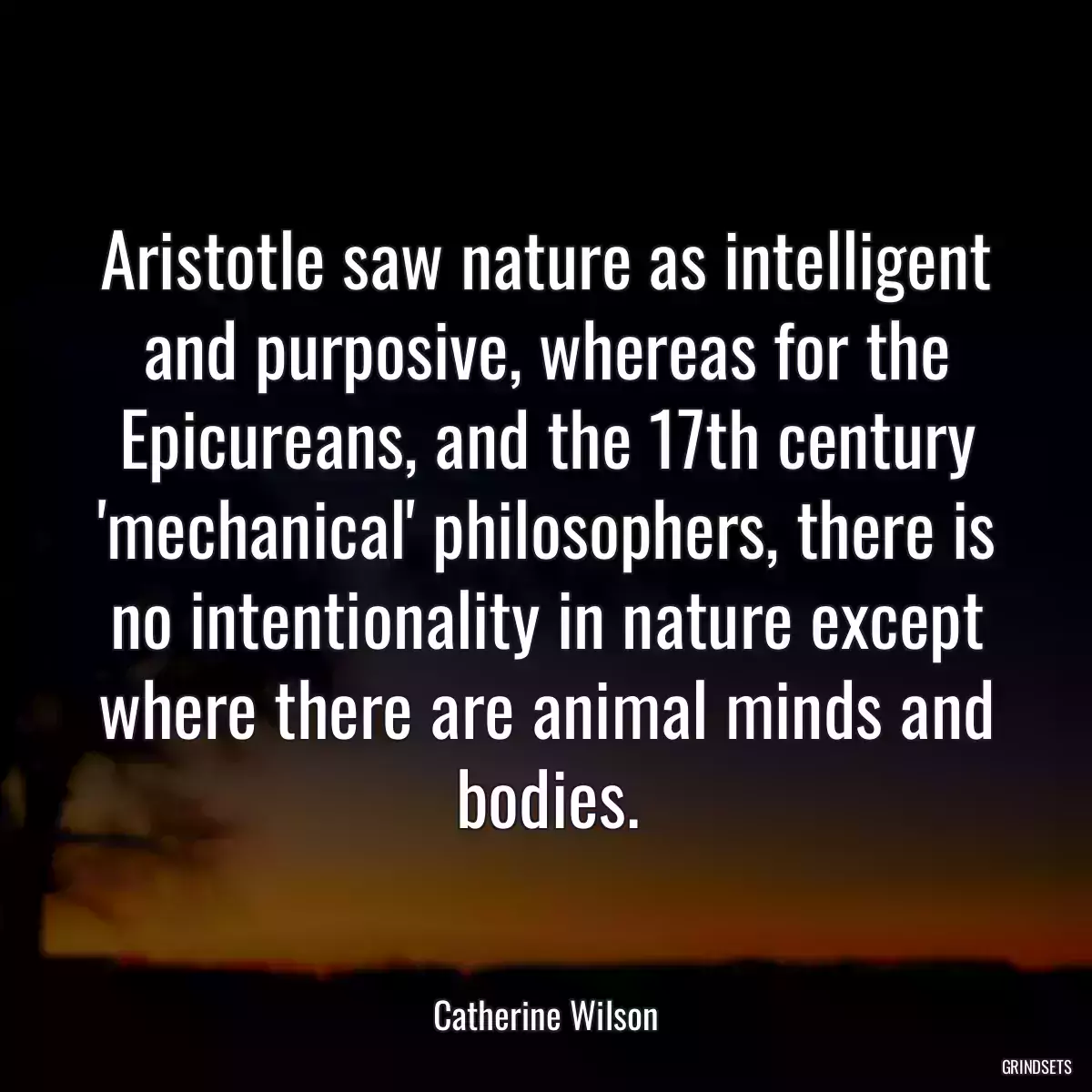
Aristotle saw nature as ...

More phrases
Being self-made is a state of mind, and once you put that mentality to work, your success will come.
Dave East
A lot of people change for good. Some people just fall off. Just trying to progress in anything, no matter what you're doing, I feel like any progression you make... some people aren't gonna be around you that were around you.
Dave East
What a distressing contrast there is between the radiant intelligence of the child and the feeble mentality of the average adult.
Don't settle in the land of barely enough. That is where you are, it is not who you are. That's your location, it's not your identity. No matter what it looks like, have an abundant mentality.
Everything in your life, every experience, every relationship is a mirror of the mental pattern that is going on inside of you.
Quotes from the same author
Order can arise from chaos without anyone or anything directing the process when unstable combinations of atoms perish and others persist. In the 17th century, Descartes applied this insight to cosmology, and long before Darwin presented his more rigorous ideas about variation and selection, people began to speculate more openly about the origins of life and the species in Epicurean terms.
Catherine Wilson
About 70% of what I've written about is centered on the clashes and conformities between the emerging life and physical sciences and older metaphysical frameworks in the 17th and 18th centuries. The other 30% consists of one-off essays or researches into other intriguing contemporary topics such as visual experience, aesthetics, social justice issues, and the epistemology of moral knowledge.
Catherine Wilson
We are now returning to the 18th century empirical approach with the new interest in the evolutionary basis of ethics, with 'experimental' moral philosophy and moral psychology. As a result, we understand better why moral formulas are experienced as ineluctable commands, even if there is no commander and even if the notion of an inescapable obligation is just superstition. So moral philosophy has made huge progress.
Catherine Wilson
People should be able to develop their abilities and interests and have access to such goods as friendship, artistry, and nature and a political voice. It's possible to be poor and yet have all this, but in a polarized society, and one where culture and adventure have been thoroughly monetised, it is a lot more difficult.
Catherine Wilson
In the academic setting, you take (typically) lonely, interesting middle-aged men and beautiful, intelligent young women, and everybody's motivations for display and conquest are engaged to the max. Sublimated, this can be a powerful force for the good - Plato had a lot to say about that - but acted upon it can bring evils without end.
Catherine Wilson